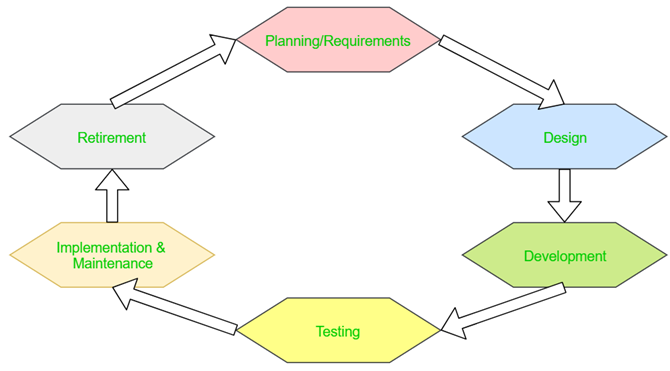In computer science, there's an unsung hero in every software development project: the software testing engineer.
If you have a habit of finding bugs or problems in software, or you have strong opinions about how software could be better, a software testing job may be for you.
As with many technology fields, you don't learn everything you need to know in college to become a software tester. You'll learn the foundation you need to get started. But to achieve success in the field there are certifications, additional trainings, and many other topics you'll need to become an expert in.
In this article we'll cover the basic schooling and training you'll need to position yourself for your first job. But we'll also explore the areas to focus on in your training and certification efforts to advance in your career.
What Does a Software Tester Do?
A quality engineer who specializes in software documents and executes test plans, and follows procedures for reporting software anomalies.
Software testers work closely with software engineers who can apply the appropriate fix, utilizing the correct methodology. As a software tester, you'll have training on software development methodologies, so you'll know exactly what to do when you do find a software bug.
The key takeaway is that you'll be building solid relationships with software engineers.
As a software tester, you'll build the trust and respect of software engineers by helping them produce polished, professional code.
This kind of software development teamwork helps everyone look good. As a software tester, you're an important part of the team.
Here are some of the core responsibilities you'll find yourself doing when you take your first software testing job:
- Writing test plans that align with the design documents software engineers wrote. You'll be ensuring the software does everything that the design document promised it would.
- Executing test plans against the newly developed software. As a software tester, you're the first person to ever lay your hands on the software as a user.
- Properly documenting test plans according to industry-specific documentation procedures. For example, GMP (good manufacturing practices) in the manufacturing industry strictly defines how to execute test plans.
- Working with software engineers and project managers in every phase of the software development life cycle (SDLC): design, develop, testing, release, and maintain.
Most of what you learn in college will be related to the SDLC software life cycle. It'll also include how you develop and execute test plans, proper documentation procedures, and similar aspects of the job that are common across the field.
If you know what industry you want to get into, that could help you further specialize by learning procedures specific to manufacturing, aerospace, education, energy, and more.
Entry Level Skills for Software Testers
To break into this field, you're going to need some basic training in the following areas:
- How software algorithms work
- Designing good test plans
- Project management
- Excellent communication skills
- Quality assurance
- Basic programming and scripting skills
- Good documentation skills
Unfortunately there are no college degree programs for software testing. There are major degree programs that do cover most or all of the areas listed above. Your best choice would be Computer Science, or Electrical or Computer Engineering.
If you're certain that you want to get into software testing as a career, then choose your courses in degree programs focused on the skills listed above.
If possible, seek out summer internship opportunities that involve some aspect of software testing. This way, when you graduate, you'll not only have the right degree for the field, but you'll already have a little bit of experience under your belt as well.
Career Development Skills for Software Testers
Once you have your first job, don't stop your training. To become an expert in the software quality industry, you need to work toward gaining skills and certifications.
The following are core areas you should work toward gaining as much experience and certification as possible.
Software Development Life Cycle (SDLC)
Understanding the SDLC and the role or roles you play in it are critical to doing well in the field of software testing. This is because you serve as a core (and critical) transition between development and implementation or rollout of software.
If testing is done well, the rollout to users will go smoothly. If testing is shoddy or the team doesn't give enough importance to the testing phase, the rollout could become a disaster when end users discover all of the company's software bugs.
Improper testing can have major consequences to a company's brand and reputation. You'll learn a lot about SDLC at college and once you start working at your first job. However, it's an area you really need to keep developing with additional training and certifications. The following are some of the leading, recognized certification programs in any industry.
- ISTQB: The leading organization for software testing certifications should be your first stop.
- iSQI: Internationally recognized quality certifications.
- IIST: Offers software testing certifications, courses, and even free training.
- UC Berkeley: A Certificate program in software development and programming.
- ASPE: Training and cetification for testing, development frameworks, and project management.
- Project Management Institute: Certifications for project management across multiple software development frameworks.
- Netcom: Several certification programs for Agile project management.
Try to tailor your certifications and training around the organizations that your particular industry uses. Ask around in your company to find anyone else who became certified and find out what board or organization they worked with.
Documentation Best Practices
In highly regulated industries like healthcare or military, following software testing documentation best practices is critical. Documentation tells regulators that you've done the testing on software that your project plan promises, and that testing was executed successfully against the final design documents.
Testing needs to be executed in the proper order, and by properly trained individuals. Your documentation proves all of this took place. This is called Quality Assurance.
Not following the right documentation best practices can lead to audit finds by government regulators. Government findings lead to a significant impact on brand reputation. It even hurts overall company revenue.
It's a lot of responsibility on your shoulders as a software tester, but it's also a responsibility that's easy to meet if you get properly trained on the best practices and follow all of the rules. No exceptions.
This is why it's important to regularly brush up on your quality control documentation skills, no matter where you are in your career.
- MasterControl: Offers free videos detailing proper documentation and change control practices.
- Agile Modeling: Provides extensive documentation on Agile documentation best practices.
- StrongQA: Offers testing document templates for everything from test cases all the way through the traceability matrix.
Becoming a Software Tester
While the idea of dealing with government regulations and so much documentation can feel daunting, don't worry. It's not that bad. Most companies have already established entire systems complete with document templates that you can use. So you aren't writing everything from scratch.
Most of your time as a software tester will be working with the actual developed software, performing the tasks defined in the test plans, and documenting results. If you have a natural eye for spotting design or performance problems with software you've used in the past, you may be a natural for this kind of job.
Have you ever considered becoming a software tester as a career?



